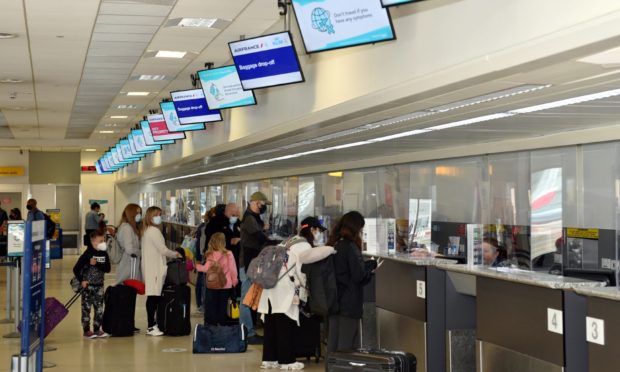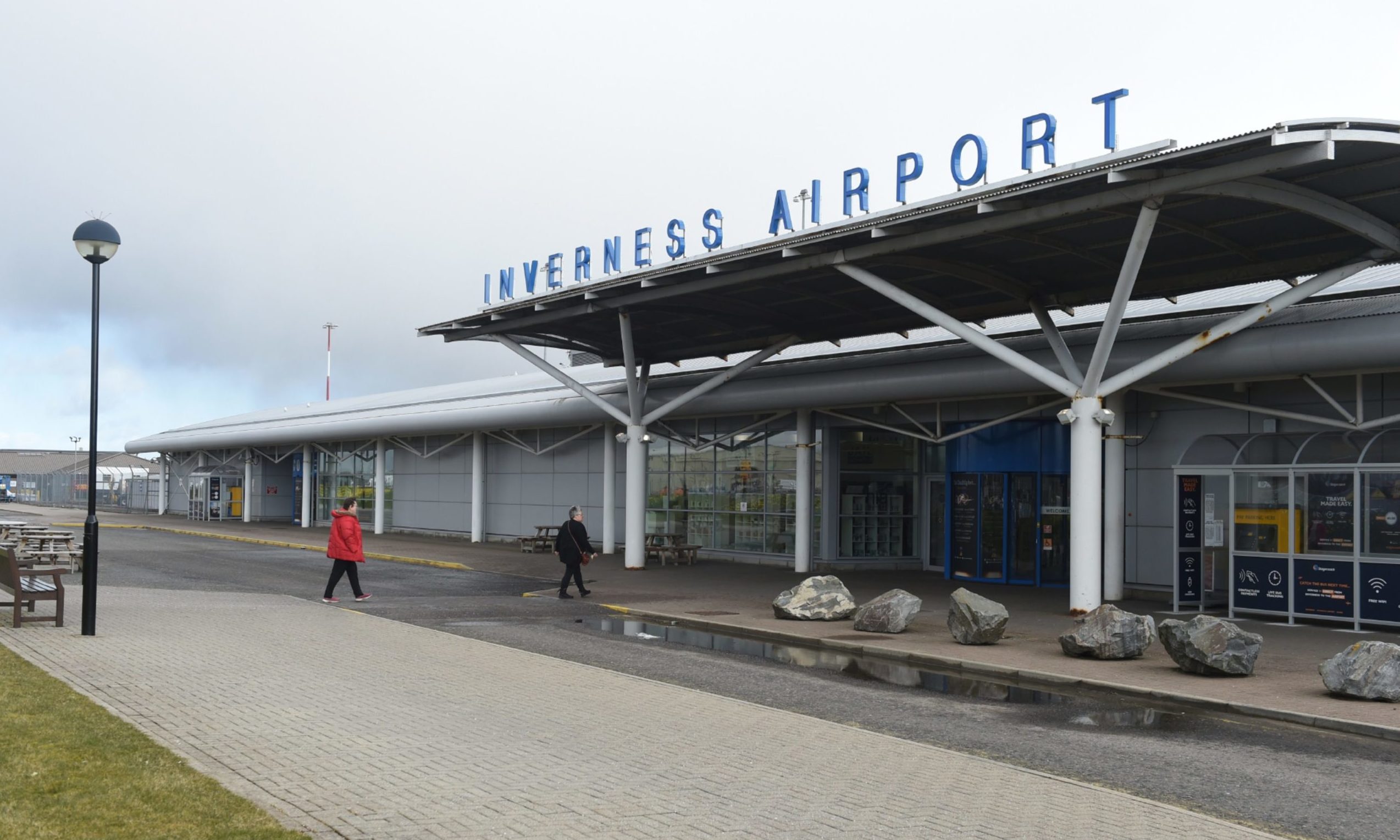Requiring international travellers to test negative for Covid-19 before entering Scotland could leave people stranded overseas – but has been hailed as the “only way” the aviation industry can bounce back.
The Scottish Government says all passengers arriving from abroad will need to provide proof they are coronavirus-free up to 72 hours before their flight.
The safeguard, which will be introduced “as soon as practically possible” – likely next week – has been designed to protect the country from new strains of coronavirus, seen in the likes of Denmark and South Africa.
A similar pre-departure testing scheme will also be rolled out in England, with the UK Border Force carrying out spot checks across the country to catch those flouting the rules.
Those arriving from countries not on the quarantine exemption list, will still be required to self-isolate for 10 days.
Transport Secretary Michael Matheson said the move is vital to “help drive down transmission of the virus to safeguard health, protect the NHS and save lives”.
But concerns have been raised that inefficient Covid testing regimes in other countries could slow passengers’ return to the UK.
Currently Heathrow Airport has the capacity to test up to 25,000 people a day, but its chief executive warned other international facilities may not be able to meet demand.
John Holland-Kaye said: “If you’re caught out in one of those countries, and you now have these new requirements, then you’ll find it quite difficult to get the tests that are needed in order to come back home again.
“That’s going to be a real challenge for a lot of passengers.”
Currently all non-essential travel in and out of Scotland is illegal, in line with current nationwide lockdown measures.
Derek Provan, chief executive of AGS Airports, which owns Aberdeen, Glasgow and Southampton airports, said there is no alternative to pre-departure testing if international air travel is to resume.
He urged decision-makers to provide further support to help them make any required changes.
“We have been calling for the introduction of an effective testing regime for months,” he said.
“It is the only way to safely re-establish connectivity while protecting the public from high risk arrivals.
“While it is encouraging government has now decided to put such a scheme in place, it has taken much longer than expected.
“Our industry has been devastated by this pandemic and has effectively been shut down for close to one year.
“If we are to be in any position to support our country’s and the economy’s recovery from the crisis, it’s vital government provides much needed sector-specific support.”
Highlands And Islands Airports Limited (Hial) operates 11 regional airports across Scotland, including Inverness, Wick and Sumburgh.
Of these, Inverness is the only facility with regular international travel – but its KLM link to Amsterdam was temporarily pulled at the end of last year.
A spokesman said: Hial has robust Covid-19 measures in place at all its airports.
“Any additional requirements relating to international travel will implemented in accordance with Scottish Government and Public Health Scotland regulations and guidelines.”
The move has been welcomed by the Scottish Passenger Agents’ Association, which represents travel agents.
But president Joanne Dooey has also called for measures to remove the mandatory 10-day self-isolation period.
She said: “The travel industry needs a comprehensive, internationally-agreed, strategic plan for how we can return to travelling both in the period before the vaccination programme is complete and in the period beyond this.
“We need to see a blueprint for how we return to travelling for business and leisure reasons because currently the sector has been devastated and is in need of significant support.”
The UK government says those caught breaking the rules in England will be hit with a £500 fine.
Sanctions for Scottish travellers are yet to be announced.
Mr Matheson added: “We have been in regular dialogue with the UK Government and the other devolved administrations about what further measures can be put in place, including the introduction of pre-departure testing.
“There are still some outstanding issues to address and it is important that we consider the implications, but we are keen to implement this as soon as it is possible.”


